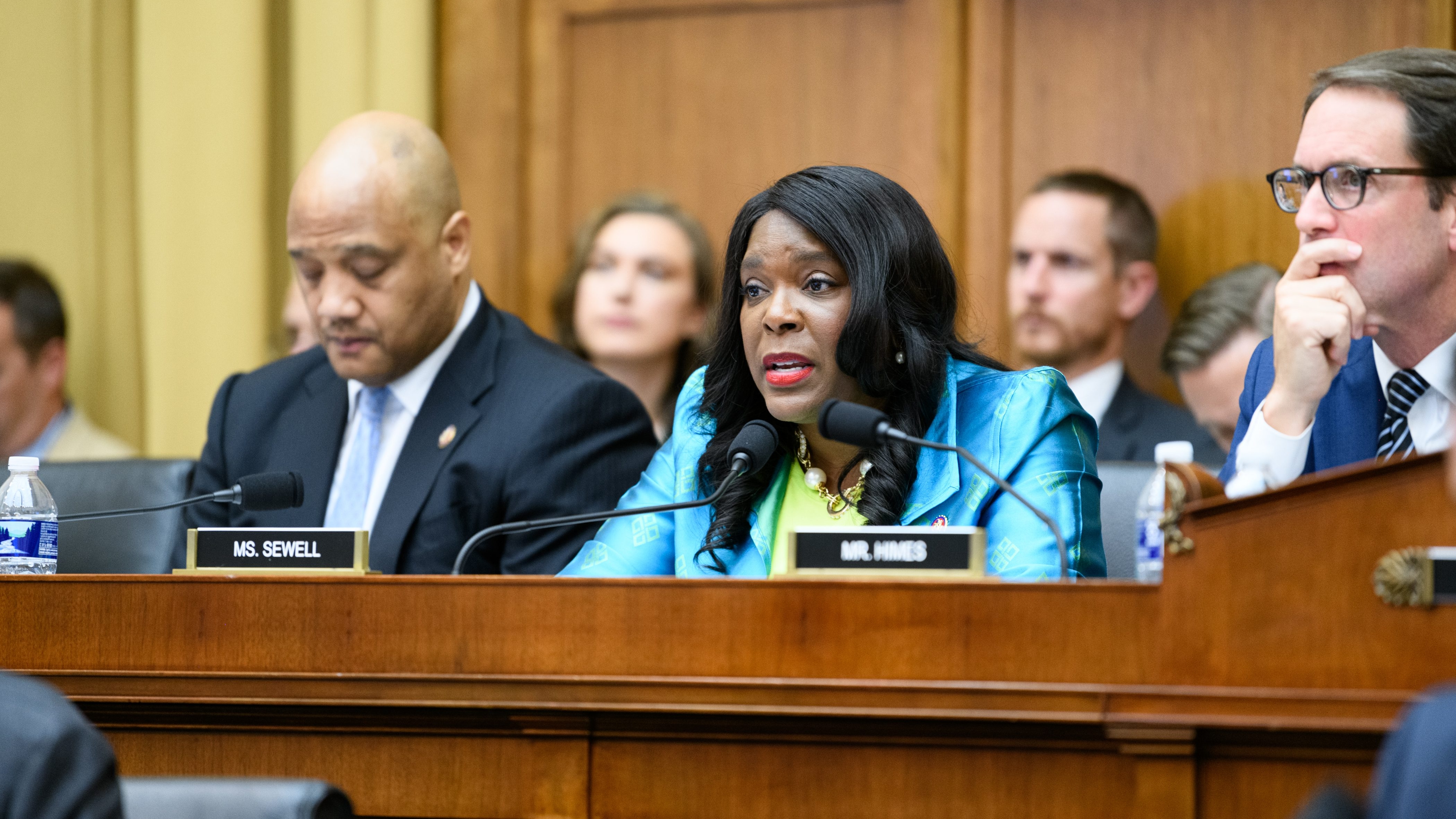Alabama Gov. Kay Ivey admitted Thursday that during her years as a student in college she did perform a comedy skit in blackface. Congresswoman Terri Sewell, D-Selma, the only black woman to represent Alabama in Congress in the two-hundred-year history of the state, called the governor’s conduct at the time “reprehensible.”
“Racism – in any of its forms – is never acceptable, not in the 1960s and not now,” Sewell said. “Governor Ivey’s actions were reprehensible and are deeply offensive. Her words of apology ring hollow if not met with real action to bridge the racial divide.”
“In order to truly move forward, we must engage in an open and honest dialogue about race and our state’s painful past to ensure no group of Alabamians feels marginalized. Alabama cannot escape its painful history without reconciliation, and Governor Ivey’s admission today only deepens open wounds,” Sewell continued. “Only real efforts, not words, can end the racial disparities that exist in Alabama in health care, education, wealth and housing, to name a few. Governor, there’s a lot of work to do!”
Alabama Republican Party Chairman Terry Lathan also issued a statement concerning Governor Kay Ivey.
“The Alabama Republican Party appreciates and supports Governor Kay Ivey taking ownership of and responsibility for this 50 plus-year-old incident,” Lathan said. “While it occurred when she was a college student, Governor Ivey has stood up, admitted her mistake and offered a sincere apology though she has no recollection of the event. Her extraordinary record of public service shows her ability to work with all people regardless of race, religion or party affiliation. We stand with Governor Ivey uniting our state for a greater future.”
On Thursday, Ivey said that she was made aware of a taped interview that she and her then-fiance, Ben LaRavia gave to the Auburn student radio station back when she was SGA Vice President. Ivey was the first female Student Government Association Vice President at Auburn and the first woman to play the trumpet in Auburn’s marching band.
“Even after listening to the tape, I sincerely do not recall either the skit, which evidently occurred at a Baptist Student Union party, or the interview itself, both which occurred 52-years ago,” Ivey said. “Even though Ben is the one on tape remembering the skit – and I still don’t recall ever dressing up in overalls or in blackface – I will not deny what is the obvious.”
“As such, I fully acknowledge – with genuine remorse – my participation in a skit like that back when I was a senior in college,” Ivey said. “While some may attempt to excuse this as acceptable behavior for a college student during the mid-1960s, that is not who I am today, and it is not what my Administration represents all these years later. I offer my heartfelt apologies for the pain and embarrassment this causes, and I will do all I can – going forward – to help show the nation that the Alabama of today is a far cry from the Alabama of the 1960s. We have come a long way, for sure, but we still have a long way to go.”
Ivey was born in 1944 and went to Auburn during the tumultuous 1960s, closely paralleling the height of the civil rights movement. When Ivey first enrolled in Auburn University there were no black students and never had been. Black people, if they were able to go to college at all in the state had to attend one of the Historically Black Colleges and Universities or leave the South.
While Ivey was at Auburn, the federal government forced Alabama to desegregate its colleges and universities. The move was not popular with White Alabamians at the time. During Ivey’s tenure at Auburn, then-Gov. George Wallace famously made his stand in the schoolhouse door at the University of Alabama to block federal law enforcement escorting the first Black student to the University. Wallace famously declared then, “Segregation now, segregation forever.” While Ivey was still a student and a member of the SGA, Harold Franklin became the first Black student to attend Auburn in 1964. The first Black student to graduate from Auburn was in 1967.
According to Wikipedia, as of 2013, 1,828 of Auburn’s 24,864 undergraduate students (7.35 percent) are Black and Blacks comprise 49 of the university’s 1,192 full-time faculty (4.1 percent).






















































